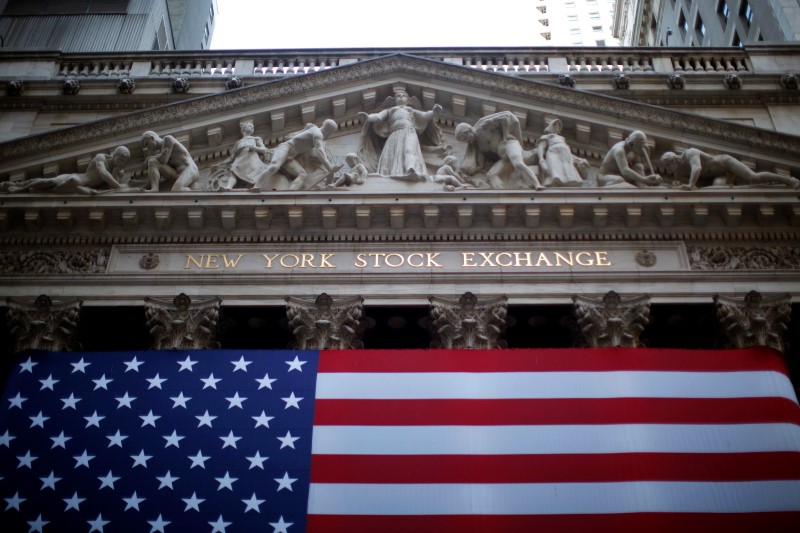 © Reuters.
© Reuters.
By Geoffrey Smith
Investing.com -- U.S. stock markets opened lower on Thursday as economic data pointed to a dip in consumer spending, under the influence of rising inflation.
Meanwhile, reports of continued intense hostilities in Ukraine also further eroded hopes for a quick end to the fighting there and the associated sanctions on Russia. Russia's President Vladimir Putin said he had signed a decree earlier ordering that 'unfriendly' countries pay for Russian gas in roubles, a measure that puts it on a collision course with buyers in Europe such as Germany and Italy who have refused to do so.
By 9:40 AM ET (1340 GMT), the Dow Jones Industrial Average was down 108 points, or 0.3% at 35,121 points. The S&P 500 was also down 0.3% and the Nasdaq Composite underperformed, sliding 0.5%, as a downgrade on market darling Advanced Micro Devices (NASDAQ:AMD) prompted fresh caution with regard to the valuation of technology stocks that have recovered strongly in the last two weeks. AMD stock fell 5.7% as Barclays analysts cut their recommendation to 'equal weight' from 'overweight'.
Earlier, data showed that consumer spending dipped by 0.4% in inflation-adjusted terms in February, as the price index for personal consumer expenditures - widely seen as the Federal Reserve's preferred measure of inflation - rose another 0.6%.
The figures also showed consumer spending patterns reverting to normal as the pandemic loosens its grip on economic life. Spending on services such as accommodation and restaurants rose, while spending on cars and consumer durables fell.
Even so, data from the labor market gave little indication of a slowdown, ahead of Friday's monthly employment report. Initial jobless claims rose by a little more than expected to 202,000 but continuing claims fell to 1.307 million, their lowest in 60 years.
Energy stocks were among the outperformers in early trade, after the Organization of Petroleum Exporting Countries approved another 432,000 barrel-a-day increase in production from May 1, which will - at least notionally - complete the return of the bloc's production to pre-Covid levels. The world's largest exporters had taken 10 million barrels a day of output offline in 2020 as global demand cratered in the early stages of the pandemic.
That news came just ahead of an announcement by U.S. President Joe Biden that the U.S. will release up to a million barrels of oil a day from its Strategic Petroleum Reserve for the next six months in an effort to tame rampant gasoline prices.
Exxon Mobil (NYSE:XOM) stock was up 0.8% while Occidental Petroleum (NYSE:OXY) stock was up 2.9%.
Elsewhere, Chinese ADRs again came under pressure after the Securities and Exchanges Commission added search giant Baidu (NASDAQ:BIDU) to the list of stocks that risks delisted from U.S. exchanges over their reporting standards. Baidu ADRs fell 6.8%, as did those of e-commerce platform JD.com (NASDAQ:JD). Alibaba (NYSE:BABA) ADRs fell 4.9%.

